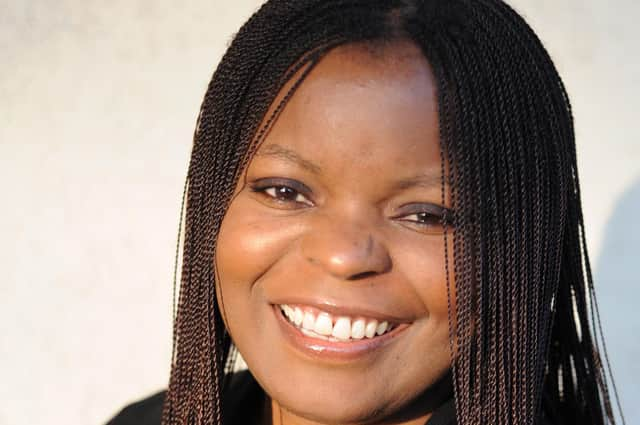Book review: Out Of Darkness, Shining Light, by Petina Gappah


When John Gibson Lockhart was describing the virtues of the historical fictions of his father-in-law, Sir Walter Scott, he said that Scott beautifully illuminated the margins. It seems an apposite way to approach this novel, subtitled “Being a Faithful Account of the Final Years and Earthly Days of Doctor David Livingstone and His Last Journey from the Interior to the Coast of Africa, as Narrated by His African Companions, in Three Volumes”.
The subtitle reveals two things. We are told the story by those often left out of the grand narrative, in this case, by Halima, a cook to Livingstone, and Jacob Wainwright, an aspiring priest. Both have formerly been enslaved. The prologue makes this explicit. “This story has been told many times before, but always as the story of the Doctor. And sometimes, as appendages, as mere footnotes in his story appear the names of Chuma and Susi… seldom do their full names appear.”
Advertisement
Hide AdThe second thing to note about the subtitle is the defiantly anachronistic style, so redolent of those self-aggrandising tomes of old. After the prologue we have the narrative of Halima; then, once it is decided to take the corpse of Livingstone to Zanzibar, the voice of Wainwright takes over. Finally there is a kind of duet, with both of them recounting the aftermath of their dangerous and melancholy journey. What is pleasing about this well-crafted novel is that it shows us a double perspective on everything. The differing judgments of both the narrators on each other is well-handled, and their own vacillating feelings about Livingstone make for a moral tension aside to mere narrative momentum. Ever since Lytton Strachey’s Eminent Victorians there has been a “feet of clay” form of writing about past lives. Out Of Darkness, Shining Light manages to retain an ambiguity. No-one has the last word, except for the (genuine) epitaphs that appear as a conclusion.
Where the novel might be more problematic is stylistically. There is a smattering of words from Swahili, which is not a difficulty. More often than not the reader the can infer from the context what the words mean; in some cases it is made explicit with a running translation and there is a helpful glossary. So, when Livingstone first appears in the novel he is Bwana Daudi (that bwana means “master” is explained later). There are lists of place names, such as “Chitambo to Muanamuzungu, from Chisalamala to Kumbakumka, from Lambdalamifba to Tabora”, which act as both authenticating details and as sparks of defamiliarisation to the reader not acquainted with the specific geography of Africa.
The voice of Halima seems intended to be an oral report of things. Her chapters are full of phrases such as “and that’s no lie”, “that he has not”, “I have the bruises to prove it, don’t I”, “I will say that for him”, even “you can say what you will about my tongue, and you will not be the first either, nor the last if it comes to that, it is what it is my tongue”. Her story also has a number of couthy proverbs, such as “the luck of an uncaught thief”. But there is a constant sense of ventriloquism, that this is an invented voice.
When we shift to Jacob, the register shifts as well. His account of taking Livingstone’s corpse to the coast is cluttered with phrases from the Bible, from hymns and from John Bunyan’s Pilgrim’s Progress – a neat touch given they are on a progress to repatriate the remains. It is also rather preening. Jacob has been educated in India after being rescued from slave ships, and wants nothing more than to become an ordained minister. He is certainly writing, whereas Halima is speaking, addressing his future Reader, and seemingly unaware of his arrogance. Again, there is a degree to which this is too obviously contrived. It also has the unfortunate effect of making the “educated” African seem a bit dim.
There has to be some conflict to drive forward the plot to where it must end, and it comes in the form of a pantomime villain, whom Jacob is too naïve to understand. On the way there are murders and disappearances; yet the villain gets the major speech of the book, where he says to Jacob: “You are the worst… for you have allowed them to enter your soul and hate yourself. You have discarded your gods for theirs. You loathe your own skin and your own kin. You want to dress like they do, and speak like they do, but you will never be one of them”. This is a piercing explanation of “internal colonisation”.
The novel is good, but maybe not good enough. This may seem strange, but for me at least it always reads like fiction. The romantic subplots seem contrived. Livingstone is saint and hypocrite, Jacob is earnest and deluded, Halima is outspoken and a gossip. Maybe only the villain is allowed sincerity.
Out Of Darkness, Shining Light, by Petina Gappah, Faber & Faber, £16.99